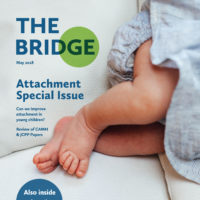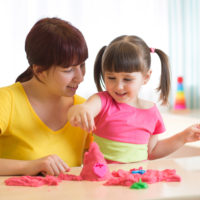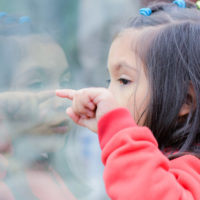Attachment
-

Attachment
The disposition of an infant or young child to identify and interact with the person or small set of persons considered most likely to provide them with care and protection is known as attachment.
Read more -

The Attachment Issue
Welcome to the May 2018 edition of the Bridge. This edition is themed around attachment in young children.
Read more -

Positive parenting reduces risk of callous-unemotional traits
New data published in the Journal of Child Psychology and Psychiatry, from the Wirral Child Health and Development Study (WCHADS) show that a child’s responsiveness to other’s emotions may be increased by the responsiveness and warmth of their mother during infancy.
Read more -

Can we improve attachment or attachment-related outcomes in young children?
Summary of attachment-related research, interventions and outcomes from Professor Jane Barlow, ex-Editor-in-Chief of the Child and Adolescent Mental Health journal.
Read more -

Adoption and attachment: A parent’s perspective
Guest blog from Dr Taylor: “I am grateful for the opportunity to recount my experience of inviting a traumatised child into my family. If I can persuade those working in children’s services to change this experience, even for just one family, I will have achieved something worthwhile.”
Read more -

Diagnostic framework for attachment disorders needs improving
Reactive and Disinhibited Attachment Disorders (RAD and DAD) occur when infants and young children have not been able to form an attachment to their primary caregiver, but questions have been raised as to whether these disorders are being over-diagnosed in adopted children.
Read more -

A harsh parenting team?
Guest blog from Dr Rachel Latham, Postdoctoral Research Associate, King’s College London on whether high quality coparenting can buffer children’s behaviour from the negative impact of harsh parenting.
Read more -

Detaching RAD from DSED: the rationale and research requirements
In order to view this content, you need to be an ACAMH member. Membership starts from just 11p a day. We hope you consider joining and being part of the advancement of child and adolescent mental health.Read moreCurrent members will need to be registered as a website user and log in, our guide to this simple process can be accessed here.
-

Early adversity impacts on associative learning
Exposure to adversity during childhood negatively impacts on behavioural development due to suboptimal associative learning, according to data from a new study.
Read more -

Low activity levels affect child mental development
High activity levels (AL) in early childhood are associated with sub-optimal social and behavioural outcomes, but whether low AL have negative outcomes is unclear. Now, a study conducted by researchers at Boston University has demonstrated that AL are curvilinearly related to mental development.
Read more